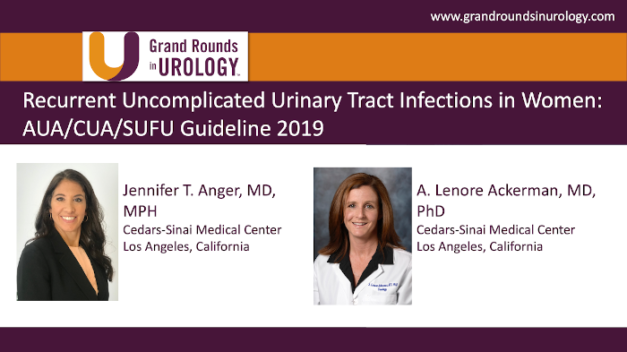Recurrent Uncomplicated Urinary Tract Infections in Women: AUA/CUA/SUFU Guideline 2019
Jennifer T. Anger, MD, MPH, Associate Professor of Urology at Cedars-Sinai Medical Center, discusses recurrent uncomplicated urinary tract infections (UTIs) in women. Dr. Anger chairs the AUA committee on guidelines for infections, and she discusses the rationale behind recent changes to recommendations. She outlines how the thinking about recurrent infections has changed over time, and highlights the collateral damage that a one-size-fits-all antibiotic treatment can cause, noting that the new guidelines emphasize treating individual urinary cultures. She goes on to discuss patient profiles, common symptoms, and what the guidelines recommend for initial work-ups as well as treatments. Dr. Anger further delves into ways to prevent or decrease the risk of UTIs with antibiotic prophylaxis, along with the possible risks of doing so.
Read More




